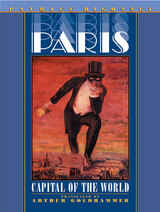

Who were the Jacobins and what are Jacobinism's implications for today? In a book based on national and local studies--on Marseilles, Nîmes, Lyons, and Paris--one of the leading scholars of the Revolution reconceptualizes Jacobin politics and philosophy and rescues them from recent postmodernist condescension.
Patrice Higonnet documents and analyzes the radical thought and actions of leading Jacobins and their followers. He shows Jacobinism's variety and flexibility, as it emerged in the lived practices of exceptional and ordinary people in varied historical situations. He demonstrates that these proponents of individuality and individual freedom were also members of dense social networks who were driven by an overriding sense of the public good. By considering the most retrograde and the most admirable features of Jacobinism, Higonnet balances revisionist interest in ideology with a social historical emphasis on institutional change. In these pages the Terror becomes a singular tragedy rather than the whole of Jacobinism, which retains value today as an influential variety of modern politics. Higonnet argues that with the recent collapse of socialism and the general political malaise in Western democracies, Jacobinism has regained stature as a model for contemporary democrats, as well as a sober lesson on the limits of radical social legislation.

In an original and evocative journey through modern Paris from the mid-eighteenth century to World War II, Patrice Higonnet offers a delightful cultural portrait of a multifaceted, continually changing city. In examining the myths and countermyths of Paris that have been created and re-created over time, Higonnet reveals a magical urban alchemy in which each era absorbs the myths and perceptions of Paris past, adapts them to the cultural imperatives of its own time, and feeds them back into the city, creating a new environment.
Paris was central to the modern world in ways internal and external, genuine and imagined, progressive and decadent. Higonnet explores Paris as the capital of revolution, science, empire, literature, and art, describing such incarnations as Belle Epoque Paris, the Commune, the surrealists' city, and Paris as viewed through American eyes. He also evokes the more visceral Paris of alienation, crime, material excess, and sensual pleasure.
Insightful, informative, and gracefully written, Paris illuminates the intersection of collective and individual imaginations in a perpetually shifting urban dynamic. In describing his Paris of the real and of the imagination, Higonnet sheds brilliant new light on this endlessly intriguing city.

Pont-de-Montvert is a small and shrunken Protestant village in an isolated part of the Cévennes mountains of Southern France. In 1700, the village was a complicated world where some fifteen hundred landless peasants, yeomen peasants, artisans, bourgeois, and nobles had unequal rights, unequal responsibilities, and different perceptions of politics. Today, Pont-de-Montvert is a much smaller, classless society, where social differences have little to do with politics and are due more to personal worth than to inherited wealth or status.
In the seventeenth century, both rich and poor of Pont-de-Montvert had their own politics; one century later, at the time of the French Revolution, the political differences had vanished though the social ones remained. During the nineteenth century, the social structure was transformed, as were its connections with politics.
In this book, P. L.-R. Higonnet explains these changes and describes the conditions of life for different people at different times in a village that is both a part of France and a world unto itself.

In a new work anticipating the bicentennial of the French Revolution, Patrice Higonnet demonstrates why the American and French Revolutions, although roughly contemporaneous and inspired by many of the same ideals, followed utterly different trajectories: the Americans proceeded to stabilize and build upon their revolution, while the French stumbled from bloodbath to republic to empire to monarchy again.
Eighteenth-century American society, individualistic to a degree, nevertheless managed to ground its politics in communitarian philosophy and to deny the existence of social cleavages, thus creating a pluralist ideology that successfully balanced the two strains. In contrast, argues Higonnet, individualistic politics in France collapsed in 1791 for lack of a foundation, and French society drifted toward terrorism as the rival claims of libertarian and communitarian principles struggled on the national scene. Higonnet works out these ideas in a learned and persuasive new perspective on the two major democratic revolutions of the eighteenth century.
This is a book for serious readers of history that can also refresh college courses in American history, French history, the history of revolutions, comparative studies, intellectual history, and the history of the eighteenth century in the Western world.
READERS
Browse our collection.
PUBLISHERS
See BiblioVault's publisher services.
STUDENT SERVICES
Files for college accessibility offices.
UChicago Accessibility Resources
home | accessibility | search | about | contact us
BiblioVault ® 2001 - 2024
The University of Chicago Press









